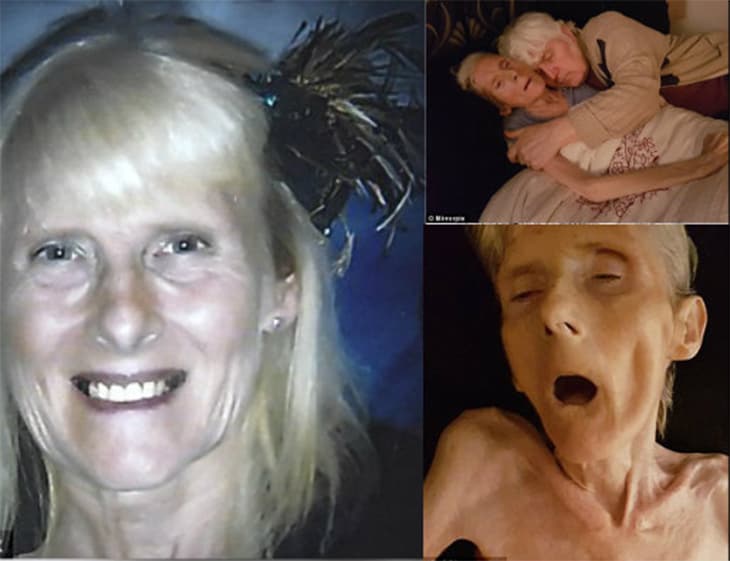
By: STEPHEN MATTHEWS FOR MAILONLINE | DailyMail
‘This is why we are fighting for the right to die’: Family release harrowing pictures of MS-suffering mother in her final days of ‘torture’
- Floria Lormier, 68, was diagnosed with multiple sclerosis when she was 20
- Her condition deteriorated over the past 2 years – leaving her in constant pain
- Her family say she was just ‘skin and bones’ before passing away in December
- They hope the pictures will convince politicians to change the law on euthanasia
The family of a 68-year-old woman who suffered right up until her death are sharing her story in an attempt to fight for the right to die.
Flora Lormier, was diagnosed with multiple sclerosis (MS) when she was 20 but her condition significantly worsened over the past two years.
Left in constant pain, she had begged her husband and daughter to help her die multiple times.
The debilitating condition had blighted her body, causing her to be paralysed from the neck down.
In hope of bringing about a change to the law on euthanasia, her husband, Tom, and daughter, Tracey Taylor, have released pictures of her in her final days.
Showing her in a fragile state, she was left as just a pile of skin and bones before she eventually passed away naturally in December.
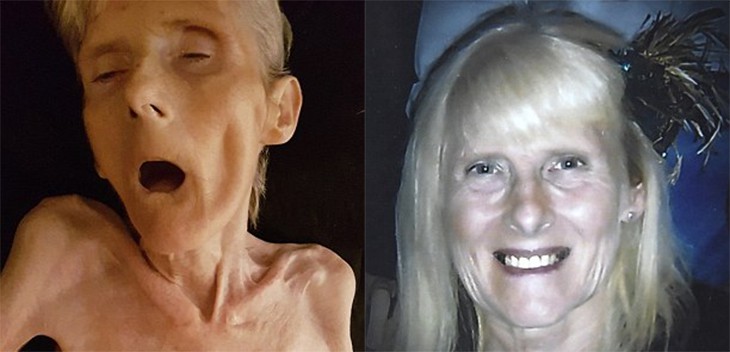
Ms Taylor, from Glenrothes, Scotland, told the Daily Record: ‘Mum was just left to suffer – it was torture, absolute torture. We were all around her when she passed but it wasn’t peaceful.
‘These pictures are what people need to see – this is why we are fighting for the right to die.
‘There wasn’t a thing we could do to help free her from her pain. We had morphine and sleeping pills and she begged us to help her end it, but we couldn’t.
‘She was like a prisoner of war who had been in a concentration camp.
‘So why is it OK for a human to suffer? The Government need to see why people want the choice to decide when to die.’
Mr Lormier, who is registered blind, spent the past two years caring for his wife every day.
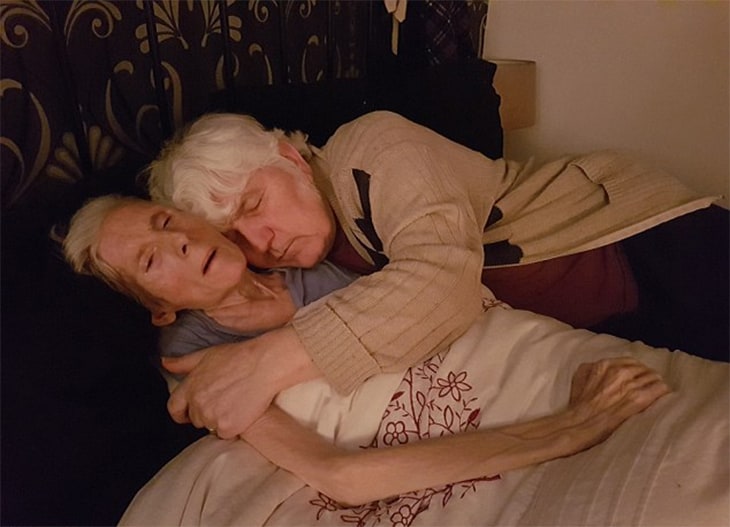
Showing her in a fragile state, she was left as just a pile of skin and bones before she eventually passed away naturally in December (pictured with her husband of 51 years, Tom, during her final weeks)
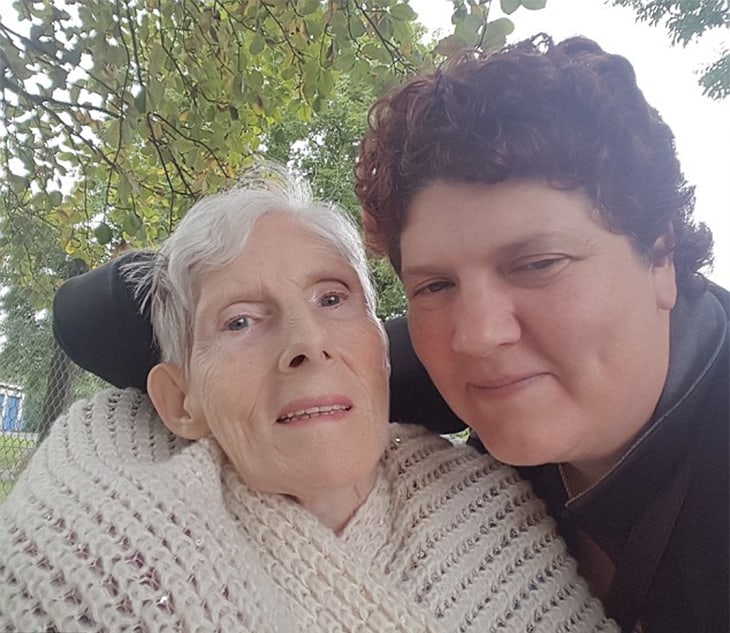
Her daughter, Tracey Taylor, said: ‘These pictures are what people need to see – this is why we are fighting for the right to die’ (pictured together in the months running up to her death)
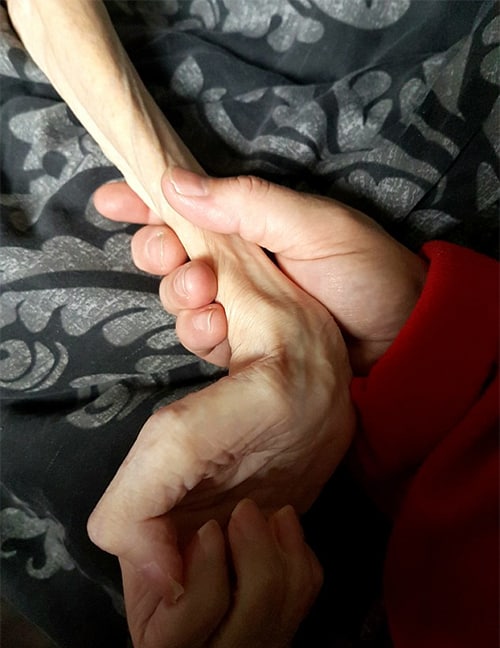
Married for 51 years and having had three children together, he witnessed her deteriorate quickly.
MS affects the brain and spinal cord, causing a range of symptoms that can be severe.
But there is no cure the for the condition, and the average life expectancy is 10 years below normal.
He told the newspaper: ‘She didn’t want to be a burden. She was the nurses’ and carers’ favourite as she never complained.
‘She was always apologising if she had ulcers and if they got worse, she’d say sorry. It got really degrading in the end.
‘She’d lie in the bed and say, ‘I don’t want to be here’ and, ‘I don’t want to see you tomorrow’. She was struggling to talk but we knew what she was saying.’
Currently both euthanasia, defined as ending someone’s life, and assisted suicide, referred to as helping in someone’s quest to stop living, are illegal under English law.
Depending on the circumstances, the former is regarded as either manslaughter or murder, the NHS say.
Euthanasia can be defined in two ways: active or passive.
Active euthanasia – where someone purposely intervenes – is currently only legal in Luxembourg, Holland and Belgium.
In these countries, terminally ill patients are allowed to receive help to die so long as they meet certain criteria.
A person must make a request to end their life, be deemed as mentally able enough to decide for themselves and they must be in clear pain.
In most instances, sufferers are given an overdose of sedatives or muscle relaxants which cause a coma – leading to death.
While passive euthanasia – where doctors stop giving sufferers their medication – and assisted suicide are legal in Switzerland, Germany, Mexico and five US states.
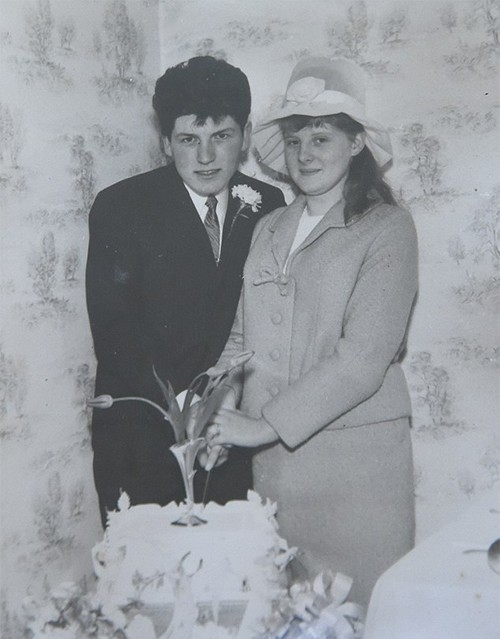
Mr Lormier, who is registered blind, spent the past two years caring for his wife every day (the couple pictured on their wedding day in May 1965).


